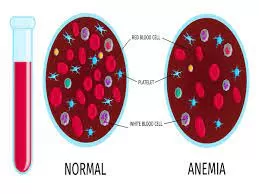June 10, 2024
A groundbreaking study conducted by French researchers has revealed a potential link between certain food emulsifiers and an increased risk of type 2 diabetes. This discovery could prompt a reevaluation of food additive regulations, highlighting the need for further studies to confirm these findings.
The Role of Ultra-Processed Foods and Emulsifiers
In Europe and North America, adults obtain 30 to 60% of their caloric intake from ultra-processed foods. A growing body of epidemiological research indicates that high consumption of these foods is associated with increased risks of diabetes and other metabolic diseases. Emulsifiers, which are commonly used additives in processed foods, may play a significant role in these health risks.
Emulsifiers are added to enhance the appearance, taste, texture, and shelf life of products such as industrial cakes, biscuits, desserts, yogurts, ice creams, chocolate bars, industrial breads, margarines, and ready-to-eat or ready-to-heat meals. Some common emulsifiers include mono- and diglycerides of fatty acids, carrageenans, modified starches, lecithins, phosphates, celluloses, gums, and pectins.
Study Overview
For the first time, a team of French researchers has investigated the relationship between dietary intake of emulsifiers and the risk of developing type 2 diabetes over a follow-up period of up to 14 years. The study analyzed data from 104,139 adults in France who participated in the NutriNet-Santé web-cohort study between 2009 and 2023. Participants provided detailed dietary records every six months, including information on all consumed foods and drinks.
The study identified the presence and quantity of food additives in the consumed products, allowing researchers to measure chronic exposure to emulsifiers over time. During the follow-up period, 1,056 cases of diabetes were diagnosed among the participants.
Key Findings
After an average follow-up of seven years, the researchers found that chronic exposure to certain emulsifiers was associated with an increased risk of type 2 diabetes:
- Carrageenans (E407): 3% increased risk per 100 mg/day
- Tripotassium phosphate (E340): 15% increased risk per 500 mg/day
- Mono- and diacetyltartaric acid esters of mono- and diglycerides of fatty acids (E472e): 4% increased risk per 100 mg/day
- Sodium citrate (E331): 4% increased risk per 500 mg/day
- Guar gum (E412): 11% increased risk per 500 mg/day
- Gum arabic (E414): 3% increased risk per 1000 mg/day
- Xanthan gum (E415): 8% increased risk per 500 mg/day
Implications and Next Steps
The study’s findings, while preliminary, suggest that certain food emulsifiers may contribute to the development of type 2 diabetes. The researchers emphasize that further investigations are needed to establish causal links and that caution should be exercised when extrapolating these results to the general population.
“This single observational study cannot establish causality on its own. We need replication in other epidemiological studies worldwide and supplementary toxicological and interventional experimental studies to inform the mechanisms linking these emulsifiers to diabetes,” said Mathilde Touvier, Research Director at Inserm, and Bernard Srour, Junior Professor at INRAE.
The research team plans to explore variations in blood markers and gut microbiota linked to emulsifier consumption to better understand the underlying mechanisms. They will also study the health impact of additive mixtures and collaborate with toxicologists to test the effects in vitro and in vivo.
This study represents a crucial step in the ongoing debate over food additive regulations and consumer protection, providing key evidence that may eventually lead to policy changes aimed at reducing the risk of type 2 diabetes.












